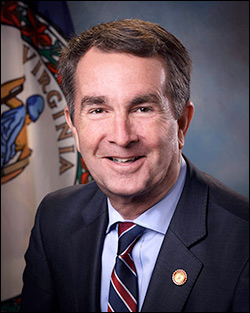By Jim Ellis — July 8, 2022
House
FL-1: Gaetz’s Primary Becoming Serious — Embattled US Rep. Matt Gaetz (R-Fort Walton Beach) just saw his Republican primary challenge become tougher. One of his GOP opponents, Air Force veteran Bryan Jones, announced that he is withdrawing from the campaign in order to support and give former FedEx executive and Marine Corps veteran Mark Lombardo a stronger chance of unseating the incumbent.Lombardo has ingested $1 million of his own money into the race and just released a new television ad emphasizing the sex trafficking investigation that involves the congressman. Now with only test pilot Greg Merk on the ballot to deflect anti-Gaetz votes, Lombardo has positioned himself as a challenger with the potential ability to snatch the nomination away from the congressman. The Florida primary is Aug. 23, and this race will become very interesting between now and then.
Governor
Arizona: Conflicting Polls — Data Orbital and Moore Information are out with polls that tell a different story in what has become a GOP gubernatorial race between former news anchor Kari Lake and Arizona University Regent Karrin Taylor Robson. Last week, ex-US representative and 2000 gubernatorial nominee Matt Salmon dropped out of the race and endorsed Robson.
The Moore Information survey was conducted for the Salmon campaign (June 22-23; 1,000 likely Arizona Republican primary voters; interactive voice response system) and produced a ballot test that posted Robson, for the first time, to a 38-37 percent edge over Lake in a two-way race.
Data Orbital’s poll released Wednesday (June 30-July 2; 515 likely Arizona Republican primary voters; live interview & text), indicated that without Salmon in the race, the previous Lake 39-31 percent advantage drops to 40-35 percent. The Arizona primary is Aug. 2. Secretary of State Katie Hobbs is the likely Democratic nominee. Gov. Doug Ducey (R) is ineligible to seek a third term.
Hawaii: Lt. Gov. Green Swamping Rep. Kahele — A Civil Beat/Hawaii News Now survey (conducted by MRG Research; June 28-30; 1,120 registered Hawaii voters; 782 likely Hawaii Democratic primary voters) projects physician and Lt. Gov. Josh Green to be holding a huge 48-16-15 percent lead over US Rep. Kai Kahele (D-Hilo), and former Hawaii First Lady Vicky Cayetano. Green has enjoyed big leads since the campaign’s beginning. He is clearly the favorite for the party nomination on Aug. 13, and to succeed term-limited Gov. David Ige (D) in the general election.
Maryland: Too Close to Call — The Garin-Hart-Yang Research Group, polling for the Wes Moore gubernatorial campaign (June 22-27; 601 likely Maryland Democratic primary voters; live interview), finds the Maryland Democratic primary headed for a razor-thin finish in the upcoming July 19 delayed nomination election.
According to the GHY results, state Comptroller Peter Franchot slips by author Moore by just a 21-20 percent margin, with former Democratic National Committee chairman Tom Perez closely trailing with 16 percent. A third of the voters still claim to be undecided within two weeks of the primary election. The nomination vote was delayed from its original June 28th date when a court overturned the state’s new congressional lines.
Wisconsin: One Less Republican — Businessman Kevin Nicholson was a late entry into the Republican gubernatorial campaign and now he is an early exit. Nicholson, a former US Senate candidate, Wednesday said he is discontinuing his gubernatorial campaign conceding that he has little chance to win the party nomination. This leaves the race as an ostensibly two-way affair between former Lt. Gov. Rebecca Kleefisch and construction company owner Tim Michels. Gov. Tony Evers is unopposed for the Democratic nomination. The general election is expected to be rated as a toss-up.





